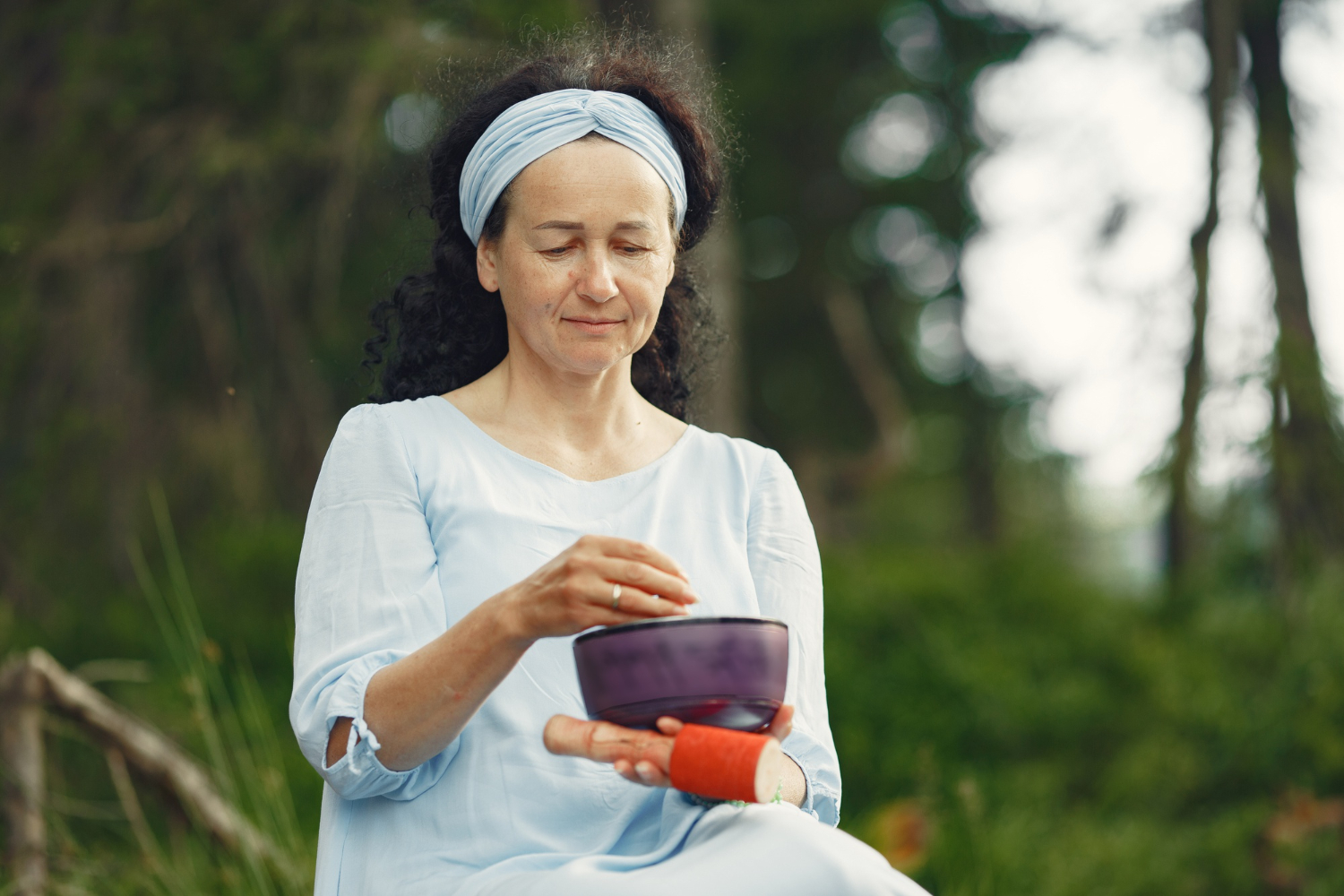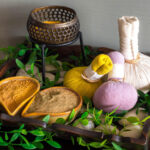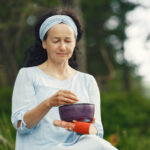Menopause is a significant life transition for women, marking the end of the reproductive phase, typically between the ages of 45 to 55. This period is associated with a natural decline in estrogen and progesterone levels, which can lead to various physical and emotional changes. While menopause is not a disease but a natural biological process, many women experience challenges such as:
- Hot flashes
- Night sweats
- Mood swings
- Sleep disturbances
- Weight gain
- Joint stiffness
- Fatigue
- Changes in skin texture and bone health
Ayurveda, the traditional system of holistic health from India, offers natural strategies to help support overall well-being during this transition. Through personalized dietary guidance, lifestyle adjustments, herbal support, and relaxation therapies, Ayurveda aims to maintain balance in the body and mind.
The Ayurvedic Perspective on Menopause
In Ayurveda, life is divided into three stages, each dominated by one of the three doshas:
- Childhood: Kapha-dominant’
- Adulthood: Pitta-dominant
- Menopause and Aging: Vata-dominant
Thus, menopause is viewed as a Vata phase of life, where Vata’s qualities — dry, cold, light, and mobile — tend to increase. If Vata becomes aggravated, it may lead to symptoms like anxiety, insomnia, dryness, and joint discomfort.
Additionally, imbalances in Pitta can manifest as hot flashes, irritability, and skin issues, while Kapha imbalance may contribute to weight gain, sluggishness, and depression.
Ayurvedic Strategies to Support Wellness During Menopause
1. Personalized Diet for Balance
- For Vata Imbalance: Favor warm, moist, and nourishing foods such as soups, stews, cooked vegetables, and healthy fats like ghee and sesame oil.
- For Pitta Imbalance: Incorporate cooling foods like cucumbers, melons, coconut water, mint, and leafy greens to help manage heat and inflammation.
- For Kapha Imbalance: Choose light, spicy, and dry foods to prevent sluggishness, such as ginger tea, lightly spiced meals, and green vegetables.
Other general dietary recommendations
- Include phytoestrogen-rich foods like flaxseeds, sesame seeds, and soy in moderation, as they may offer gentle hormonal support.
- Drink herbal teas with ingredients like fennel, chamomile, and licorice for soothing effects.
- Reduce intake of processed foods, excessive sugars, and heavy dairy, which may aggravate Kapha.
2. Lifestyle Practices for Menopausal Health
- Maintain a consistent daily routine (Dinacharya) to stabilize Vata energy.
- Engage in regular physical activity, such as yoga, swimming, and walking to maintain bone strength, flexibility, and cardiovascular health.
- Practice meditation, mindfulness, and deep breathing (Pranayama) techniques like Nadi Shodhana (alternate nostril breathing) to reduce stress and calm the mind.
- Ensure adequate sleep hygiene, aiming for 7-8 hours of restful sleep, as quality sleep is crucial for hormonal balance and mental well-being.
3. Ayurvedic Herbs Traditionally Used for Women’s Wellness
- Shatavari (Asparagus racemosus): Considered the primary female rejuvenative herb in Ayurveda, traditionally used to nourish the reproductive system and promote hormonal balance.
- Ashwagandha (Withania somnifera): Known as an adaptogen, it helps the body adapt to stress and may support restful sleep and energy levels.
- Brahmi (Bacopa monnieri): Supports cognitive health, memory, and emotional stability.
- Triphala: A combination of three herbs that supports digestive health and regular elimination.
- Guduchi (Tinospora cordifolia): Traditionally used to support immunity and vitality.
4. Ayurvedic Therapies for Relaxation
- Abhyanga (Warm Oil Massage): Regular self-massage with warm oils like sesame or medicated oils can nourish dry skin, improve circulation, support joint health, and calm the nervous system.
- Shirodhara: A deeply relaxing therapy where a continuous stream of warm oil is poured over the forehead. It is traditionally used to promote relaxation, reduce mental fatigue, and support restful sleep.
- Swedana (Herbal Steam Therapy): May support circulation and promote detoxification.
5. Emotional and Mental Well-being
Menopause is not just a physical transition but also an emotional and spiritual one. Ayurveda encourages practices that foster inner reflection, emotional support, and connection to community and nature, which can all contribute to holistic well-being.






